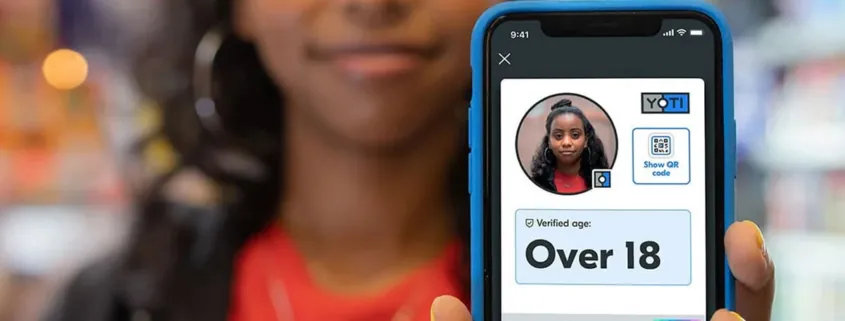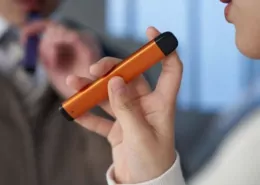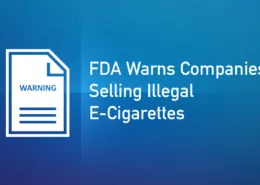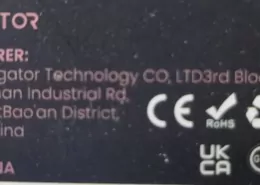Retailer Best Practices for Age Verification in Vape Sales (2025 Updated)
In the rapidly evolving and increasingly scrutinized vaping industry, robust age verification is not just a legal obligation – it’s a cornerstone of responsible retail and a critical defense against significant penalties. With federal law firmly setting the minimum purchase age for all tobacco and nicotine products, including vapes, at 21, and states like Idaho implementing strict liability for violations, retailers must adopt best practices that go beyond mere compliance.
As of 2025, with updated FDA guidance and a complex patchwork of state and local rules, establishing a bulletproof age verification system is paramount. This comprehensive guide provides actionable strategies for vape retailers to implement effective age verification, from understanding legal mandates and training staff to leveraging technology and maintaining meticulous records, ensuring you protect your business and promote responsible sales.
Understanding Age Verification Requirements in 2025
The foundation of any effective age verification strategy is a thorough understanding of the legal requirements. The federal Tobacco 21 law, effective since December 20, 2019, prohibits the sale of all tobacco products, including e-cigarettes and vaping devices, to anyone under the age of 21 nationwide. This federal mandate sets the baseline.
The U.S. Food and Drug Administration (FDA) actively enforces these regulations. A key update effective September 30, 2024, requires retailers to verify the age of any customer who appears to be under 30 years old by checking a valid government-issued photo ID. This was an increase from the previous “under 27” threshold, signaling intensified scrutiny. Furthermore, vending machine sales of tobacco and vape products are prohibited in facilities where individuals under 21 are present or permitted to enter.
State laws can impose additional, often stricter, requirements. For example, Idaho Code § 39-5703 establishes a “conclusive basis for violation” if a retailer fails to request and examine government-issued photo ID for anyone appearing under 21, eliminating “reasonable belief” defenses and making ID checks non-discretionary. California requires retailers to request ID from customers under 27 and may mandate electronic scanning in certain localities. It is crucial for retailers to be aware of both federal and their specific state and local mandates.
Best Practices for In-Store Age Verification
Simply asking for an ID is not enough. A robust in-store age verification process involves clear policies, well-trained staff, and often, technological support.
Establish and Enforce Comprehensive Written Policies
Your first line of defense is a clear, written age verification policy that all employees understand and adhere to. This policy should:
- Clearly state the prohibition of sales to individuals under 21.
- Mandate ID checks for all customers appearing under a set age (e.g., the FDA’s under-30 rule, or even a stricter “Card Everyone” policy).
- List acceptable forms of government-issued photographic identification (see below).
- Outline procedures for properly examining IDs to detect fakes or alterations.
- Detail steps for refusing a sale and handling difficult customer interactions.
- Specify disciplinary sanctions for employee non-compliance.
- Be reviewed and updated regularly, especially when laws change.
Ensure every employee reads, understands, and signs an acknowledgment of this policy.

Master Proper ID Examination Techniques
Training staff to meticulously examine IDs is critical. Minors may present actual IDs hoping staff won’t scrutinize them, especially during busy periods. Key examination steps include:
- Verify the ID Belongs to the Customer: Carefully compare the photo on the ID to the person presenting it.
- Check for Validity and Expiration: Ensure the ID is current, not expired, and is an acceptable government-issued document (e.g., driver’s license, state-issued ID card, U.S. military ID, valid U.S. or foreign passport with appropriate visa documentation). Unacceptable forms include Social Security cards, birth certificates, credit cards, student IDs, or photocopies.
- Confirm Age: Explicitly check the date of birth to confirm the customer is 21 or older. Use an age calculation tool, such as the FDA’s free Age Calculator app, a physical age verification calendar (available from the FDA’s Tobacco Education Resource Library), or features integrated into your POS system.
- Look for Signs of Tampering or Counterfeiting: Train staff on the “Hold, Sweep, Flip” technique or similar methods to inspect for alterations, unusual thickness, inconsistent fonts, damaged edges, or missing/flawed security features (holograms, microprinting, raised text).
Implement Rigorous Staff Training Programs
Well-trained employees are your most crucial asset in preventing underage sales. Training should be comprehensive, ongoing, and documented:
- Initial Training: Cover all legal requirements, acceptable ID types, examination techniques, procedures for handling fake IDs, customer interaction protocols, and the consequences of violations for both the employee and the business.
- Hands-On and Scenario-Based Practice: Use sample IDs (both real and fake, if available through training resources) for practice. Role-play challenging situations, such as dealing with customers who object to being carded or group purchase attempts.
- Regular Refresher Training: Conduct training sessions at least every six months, or more frequently if there are regulatory changes or identified compliance issues.
- Documentation: Maintain detailed training logs, including dates, topics covered, and employee acknowledgments or certifications. The FDA recommends keeping training records for at least four years.
- Supervisor Responsibility: Supervisors should regularly observe ID checking practices, provide feedback, and ensure consistent policy application.
Resources like the FDA’s “This is Our Watch” program offer free educational materials for retailers, and some states (like Wisconsin, with WiTobaccoCheck.org) provide free online training modules.
Leverage Electronic Age Verification Technology
While manual ID checks are essential, technology can significantly enhance accuracy and efficiency. Consider implementing:
- ID Scanning Systems: Age Validation Technology (AVT) can scan barcodes or magnetic stripes on IDs to automatically verify age and detect many common types of fake IDs. Options range from basic 2D laser barcode scanners ($175-$300) to more advanced 1D/2D imaging scanners ($145-$680) that can handle various ID formats, including U.S. and Canadian driver’s licenses, military IDs, and passport cards.
- Point-of-Sale (POS) Integration: Many modern POS systems can be integrated with ID scanners or have built-in age verification prompts. These systems can be configured to require an ID scan or manual age entry for every vape sale, log verification attempts, and even prevent the sale from proceeding if verification fails.
- Advanced Solutions: Emerging technologies include age estimation software (like MyCheckr, which uses cameras and algorithms) and potentially blockchain or Bluetooth-based systems for continuous age assurance, though these are less common in standard retail currently.
It’s important to remember that technology should supplement, not replace, employee training and judgment. Staff must still be able to visually inspect IDs and handle situations where technology might fail or be circumvented.
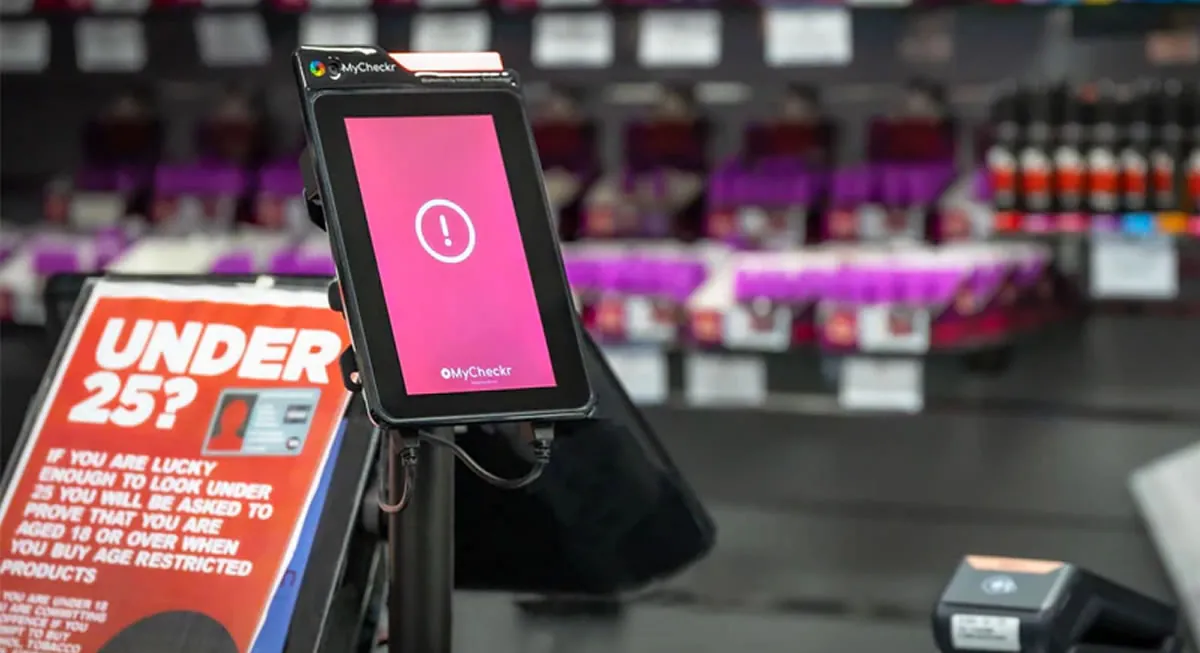
Age Verification for Online Vape Sales
E-commerce retailers selling vaping products face distinct challenges in age verification due to the lack of face-to-face interaction. Robust, multi-layered systems are essential:
- Third-Party Age Verification Services: Utilize reputable services like AgeChecked, 1account, Veratad, or AgeChecker. These services typically cross-reference customer-provided information (name, address, date of birth) against public records databases (e.g., electoral rolls, credit records) to confirm age.
- Identity Document Uploads: Some systems may require customers to upload a photo of their government-issued ID, which can then be verified using AI and sometimes human review.
- Age-Gated Websites: Implement initial age gates on your website, though these are easily bypassed and insufficient on their own.
- Adult Signature on Delivery: Crucially, ensure your shipping carrier obtains an adult signature (21+) from the recipient upon delivery and verifies their ID. This is a federal requirement under the PACT Act.
- Payment Method Checks: While not foolproof, some systems may attempt to verify age through payment methods, though this is less reliable.
The FDA mandates age verification for online sales but does not specify approved services, placing the onus on retailers to implement effective systems. Failure to do so can lead to severe penalties. Some online payment processors may also require robust age verification for vape sales.
Ecigator is one of the well-known vape brands spun off from FM Technology Co., Ltd, it’s an ISO-certified disposable vape manufacturer for OEMs, ODMs, and OBM since 2010. The founder team comes from top firms with more than 10 years of experience in the vaping industry and has devoted thousands of hours to providing users with a better and better experience.
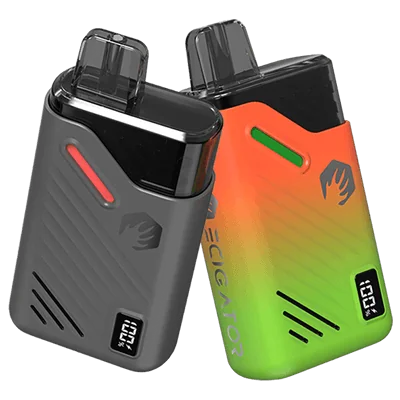
18K Disposable Pod Kit
Disposable Pod Kit – 18ml changeable pod with 650mAh rechargeable battery.
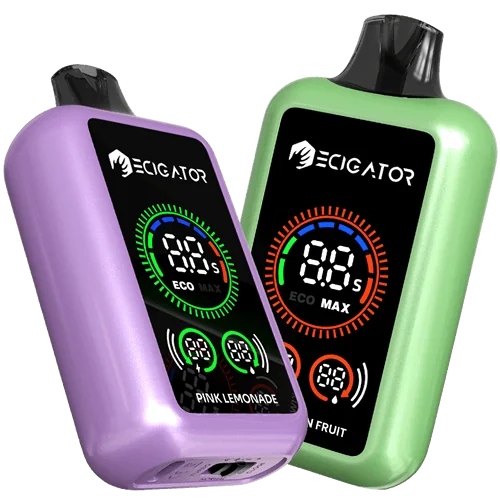
20K with Large Screen
20000 Puffs Disposable Vape with large screen. Normal and Boost working modes.
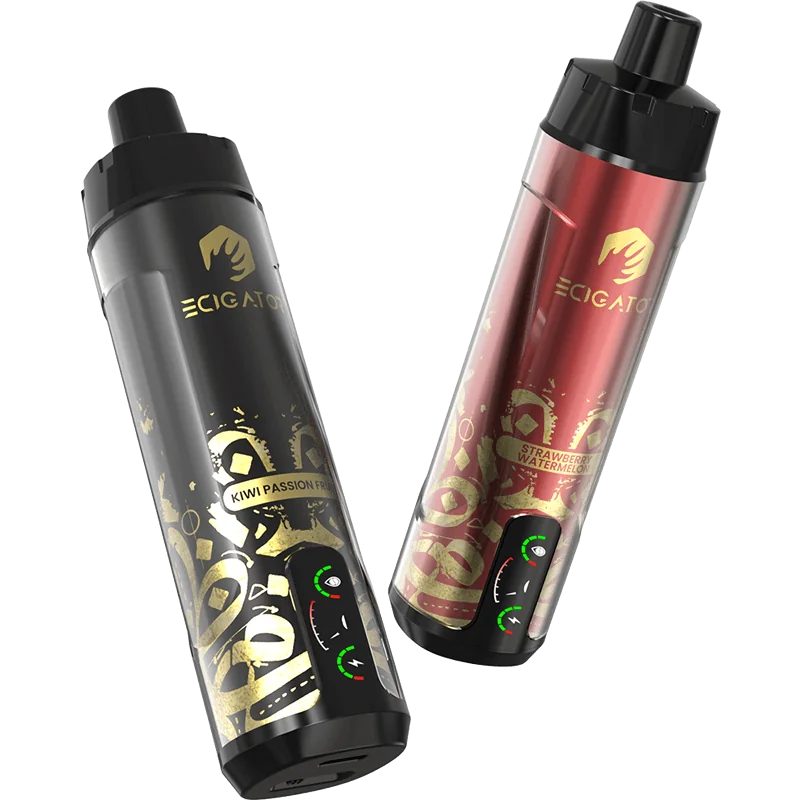
20K DTL Disposable
20K Puffs DTL(Directly to Lung) disposable vape with airflow control and screen.
Record-Keeping and Compliance Documentation
Thorough documentation is your best defense in the event of a compliance check or legal challenge. Maintaining detailed records demonstrates due diligence:
- Age Verification Logs: If using electronic systems, they should ideally log every age verification attempt, including date, time, employee, ID type (if scanned), and outcome (pass/fail). For manual checks, maintain a refusal log to document instances where sales were denied.
- Employee Training Records: Keep signed acknowledgments of policies and certificates of training completion for all staff, ideally for at least four years.
- Sales Records: Maintain records of all products purchased and sold for at least three years, or as required by state law.
- Written Policies: Keep current copies of your age verification policies and procedures readily accessible.
Compliance Monitoring and Continuous Improvement
Age verification is not a “set it and forget it” task. Regulations evolve, and staff practices can drift. Implement a system of ongoing monitoring and continuous improvement:
- Internal Compliance Checks: Regularly conduct your own internal audits or “secret shopper” tests to assess employee adherence to ID checking protocols.
- Review Electronic Records: If using ID scanners or POS prompts, periodically review the logs to identify patterns, potential issues, or training needs.
- Stay Updated on Laws: Designate someone to monitor federal, state, and local regulatory changes related to vape sales and age verification.
- Adapt and Retrain: Update your policies and retrain staff immediately whenever laws or best practices change.
The High Cost of Non-Compliance
The consequences of failing to properly verify age and prevent underage sales of vaping products can be severe and costly:
- FDA Enforcement: The FDA actively conducts compliance checks (over 1.5 million retailer checks cited) and has issued over 134,000 warning letters and more than 30,000 fines since 2020 for violations.
- Fines: Monetary penalties can range from hundreds to thousands of dollars per violation, escalating for repeat offenses.
- License Suspension or Revocation: Retailers risk losing their license to sell tobacco and vape products.
- No-Tobacco-Sale Orders: The FDA can issue orders prohibiting stores with multiple violations from selling tobacco products altogether.
- Criminal Penalties: In some states or for egregious violations (e.g., persistent, knowing sales to minors), criminal charges may be possible.
Given that tobacco and vape shops often have higher violation rates than other types of retailers, they are frequently targets for increased scrutiny.
Conclusion
In the current regulatory climate of 2025, implementing comprehensive and robust age verification practices is not just a legal necessity for vape retailers; it’s a fundamental business imperative. By establishing clear written policies, providing thorough and ongoing staff training, leveraging appropriate electronic verification technology (especially for online sales), maintaining meticulous records, and conducting regular compliance checks, retailers can significantly reduce the risk of underage sales and protect their business from severe penalties. As regulations continue to evolve, a proactive and diligent approach to age verification will remain essential for successful, responsible, and compliant vape retailing in the United States.

ECIGATOR
Ecigator is one of the well-known vape brands spun off from FM Technology Co., Ltd, it’s an ISO-certified disposable vape manufacturer for OEMs, ODMs, and OBM since 2010. The founder team comes from top firms with more than 10 years of experience in the vaping industry and has devoted thousands of hours to providing users with a better and better experience.
References
- Tobacco21.org – FDA’s Age Restrictions for Tobacco Products
- We Card – FDA Regulations Say Minimum Age to Sell Tobacco and Vaping Products is 18 (Note: This link refers to older info, federal age is 21)
- Kent.gov.uk – Age of Sale Guidance for Vape Shops (UK specific, but illustrates general principles)
- Consumer Choice Center – Age Restriction of Vape Products (Nov 2020 Report)
- We Card – How Do You Know Your Employees Are Ready to Sell Age-Restricted Products?
- NZ Ministry of Health – Record-keeping (NZ specific, illustrates general need)
- LA County Public Health – Tobacco Retailer Reference Guide (PDF – Example local guidance)
- SLO County – Tobacco Retailer Compliance Checklist (Example local resource)
- PMC NCBI – Study on retailer compliance with e-cigarette sales laws
- PMC NCBI – Study on Online Vape Retailer Age Verification Nonadherence (June 2025)
- City of Hayward – Tobacco Retailers License Checklist (PDF – Example local)
- FDA TIMP CCID (FDA Compliance Check Database)
- Truth Initiative – Youth Have Easy Access to E-Cigarettes Online
- Wisconsin DHS – Tobacco 21 (WiTobaccoCheck.org)
- FDA Press Release – Final Rule Increasing Minimum Age (Sept 2024)
- Teen Vaping of THC & Synthetic Cannabinoids Surges: Study - July 4, 2025
- UK Wolverhampton Extends “Swap to Stop” Vape Program - July 4, 2025
- Pakistan Halts Vape Crackdown Pending Legislation - July 4, 2025

